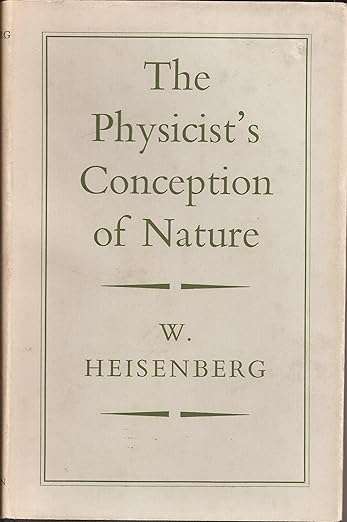
The Physicist`s Conception of Nature - Werner Heisenberg - FIRST EDITION
Check my rate
| Main centres: | 1-3 business days |
| Regional areas: | 3-4 business days |
| Remote areas: | 3-5 business days |

| Main centres: | 1-3 business days |
| Regional areas: | 3-4 business days |
| Remote areas: | 3-5 business days |
FIRST UK EDITION, HUTCHINSON, 1958, HARDCOVER, INDEX, 192 PAGES, CONDITION: AS NEW.
A summary of the history of physics with numerous extracts from the greats that preceded him Newton, Galileo, Kepler, Descartes, Ostwald, and de Broglie, to name a few and its subsequent impact upon the scientific research in the later half of the 20th century.
Werner Heisenberg (1901 1976) was a German theoretical physicist, one of the main pioneers of the theory of quantum mechanics. He published his Umdeutungpaper in 1925, a major reinterpretation of old quantum theory. In the subsequent series of papers with Max Born and Pascual Jordan, during the same year, his matrix formulation of quantum mechanics was substantially elaborated. He is known for the uncertainty principle, which he published in 1927. Heisenberg was awarded the 1932 Nobel Prize in Physics "for the creation of quantum mechanics". Heisenberg admired Eastern philosophy and saw parallels between it and quantum mechanics, describing himself as in "complete agreement" with the book The Tao of Physics. Heisenberg even went as far to state that after conversations with Rabindranath Tagore about Indian philosophy "some of the ideas that seemed so crazy suddenly made much more sense". Regarding the laws of nature he remarked that "the concept of 'the law of nature' cannot be completely objective, the word 'law' being a purely human principle".